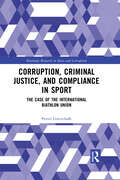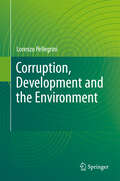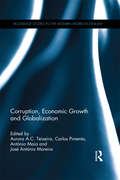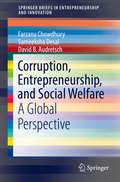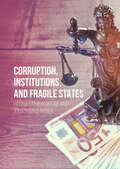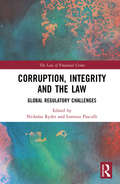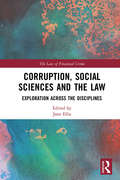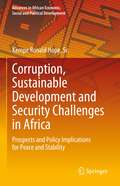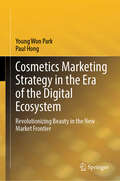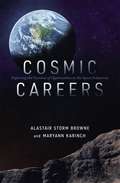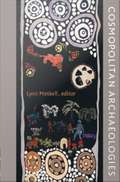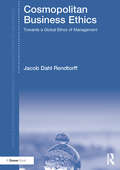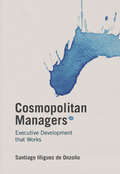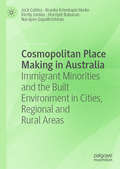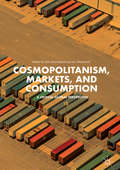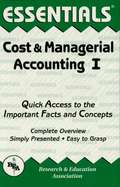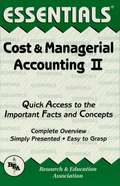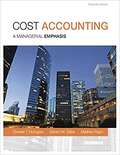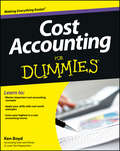- Table View
- List View
Corruption, Criminal Justice, and Compliance in Sport: The Case of the International Biathlon Union (Routledge Research in Sport and Corruption)
by Petter GottschalkThis book takes an in-depth look at corruption in sport and its intersection with criminal justice and governance processes. Focused on the high-profile case of alleged corruption in the International Biathlon Union (IBU), the book draws important conclusions for criminal justice as well as reform in sport and for the investigation and prosecution of white-collar crime. Adopting an innovative analytical framework based on convenience theory, the book explores in detail how corruption and other forms of economic crime have been investigated and prosecuted in sport. It considers aspects of the criminal justice process, including internal investigation; the role of the police and witnesses; media reporting of the case, and the opportunity structure that enables offenders to commit and conceal wrongdoing. The book also considers the wider significance of the IBU case, given the rise to prominence of biathlon within international and Olympic sport, and offers thoughts on the key lessons of this case for sporting, governmental and legal authorities. This book is fascinating reading for any researcher, advanced student, policy maker or practitioner with an interest in sport governance, sport policy, criminology, criminal justice, organisational behaviour, or the relationship between business, law and society.
Corruption, Development and the Environment
by Lorenzo PellegriniThe book analyses the influence of corruption on economic growth and environmental protection, examining corruption from different perspectives. It contributes to several streams of the literature and assembles evidence of the influence of corruption on two important variables in human welfare: income and environmental policies. The material evinces the detrimental effect that corruption has on economic growth and on the stringency of environmental policies. It also shows that standard techniques for fighting corruption are often based either on simplistic definitions or on strong assumptions that do not apply in many countries blighted by corruption. From a methodological standpoint, this work combines a number of approaches including a theoretical discussion of corruption and of its definition (often omitted in economic studies), together with econometrics, case studies and policy discussions.
Corruption, Economic Growth and Globalization (Routledge Studies in the Modern World Economy)
by Aurora A.C. Teixeira Carlos Pimenta António Maia José António MoreiraCorruption is increasingly placed on top of the agenda of national governments and supra national institutions, such as the OECD, UN or the World Bank. A necessary condition for promoting sustainable economic growth is the pre-existence of a stable political system which is able to control corruption. Corruption, however, is a very complex issue, associated with institutional and cultural specificities, personality traits related to individualistic values, and criminal personalities. In this book the social, political and economic realities that prevail in particular settings are viewed from an interdisciplinary, multidimensional, and a multi country perspective. This book is divided into three parts. The first part presents a comprehensive, theoretical and empirical framework of corruption with an overview of literature on economic growth and corruption. Part two, encompasses the in-depth analysis of several countries, ranging from middle corrupted contexts like Portugal, to highly corrupted countries including Serbia, Russia, Thailand and China- the latter viewed from the perspective of firms from a very low corruption country such as Finland. The final part explores the prevention and control of corruption, looking at the public sector in Thailand and fighting corruption with different strategies. This volume is of the interest of those who study international economics, development economics or organised crime.
Corruption, Entrepreneurship, and Social Welfare: A Global Perspective (SpringerBriefs in Entrepreneurship and Innovation)
by David B. Audretsch Farzana Chowdhury Sameeksha DesaiThis book examines the complex relationship between corruption and entrepreneurship in countries of varying levels of economic development. The authors explore the ways in which social welfare policies have changed in current economic and political environments as well as key challenges faced by the welfare policies. In addition, this book addresses three key questions with regard to the impact of corruption on institutions and social welfare: * Is corruption an additional burden in extensive regulatory environment on different types of entrepreneurship---necessity entrepreneurship, opportunity entrepreneurship, total entrepreneurial activity, self-employment, and newly registered firms? * Is corruption helpful for entrepreneurs who have aspiration to operate outside their home country border in highly regulated environment? * How does corruption affect income distribution generated through entrepreneurial activity? Entrepreneurship is an important factor for local and national economies as it generates employment and income that are crucial for economic development. Corruption can significantly influence the nature of decisions made by entrepreneurs, with profound effects on business creation, institutional development, and economic performance. For example, an entrepreneur with resources and networks might be able to influence the regulatory agencies to overlook violations, expedite permits, or bribe corrupt program administrators to violate the rules of distribution, exacerbating income inequality and obstructing economic growth and development. While corruption is not a new phenomenon, the current globalized economy has introduced trade into the corruption question as globalization puts pressure on countries to open borders to attract investments and gain a competitive advantage. However, many country level institutions do not always change as fast as the economic activity across borders, which can encourage corruption in order to bypass inefficient regulations and to successfully engage in entrepreneurship. The authors of the book examine this phenomenon. Featuring policy implications and case studies, this book will appeal to graduate students, academics, professionals, practitioners, and researchers in entrepreneurship, international business and public policy.
Corruption, Institutions, and Fragile States
by Jonathan D. Rosen Hanna Samir KassabThis book examines the relationship between state fragility and corruption. It analyzes a variety of regions throughout the world, including Latin America, Central Asia and the Middle East, Africa, Central America and Mexico, South America, and Russia. States that are plagued by high levels of state fragility and corruption facilitate illicit activities and other criminal enterprises.
Corruption, Integrity and the Law: Global Regulatory Challenges (The Law of Financial Crime)
by Nicholas Ryder Lorenzo PasculliGlobalisation has opened new avenues to corruption. Corrupt practices are proliferating not only within national borders but across different countries. Despite many national and international anti-corruption bodies and strategies, corruption far from being eradicated. There is an urgent global demand for a better understanding of corruption as a phenomenon and a thorough assessment of the existing regulatory remedies, towards the establishment of more effective (and possibly uniform) anti-corruption measures. Our previous collection, Corruption in the Global Era (Routledge, 2019), analysed the causes, the sources, and the forms of manifestation of global corruption. An ideal continuation of that volume, this book moves from the analysis of the phenomenon of corruption to that of the regulatory remedies against corruption and for the promotion of integrity. Corruption, Integrity and the Law provides a unique interdisciplinary assessment of the global anti-corruption legal framework. The collection gathers top experts in different fields of both the academic and the professional world – including criminal law, EU law, international law, competition law, corporate law and ethics. It analyses legal instruments adopted not only at a supranational level but also by different countries, in the attempt of establishing an interdisciplinary and comparative dialogue between theory and practice and between different legal systems towards a better global promotion of integrity. This book will be of value to researchers, academics and students in the fields of law, criminology, sociology, economics, ethics as well as professionals – especially solicitors, barristers, businessmen and public servants.
Corruption, Social Sciences and the Law: Exploration across the disciplines (The Law of Financial Crime)
by Jane EllisThe problem of corruption, however described, dates back thousands of years. Professionals working in areas such as development studies, economics and political studies, were the first to most actively analyse and publish on the topic of corruption and its negative impacts on economies, societies and politics. There was, at that time, minimal literature available on corruption and the law. The literature and discussion on bribery and corruption, as well as on the negative impact of each and what is required to address them, particularly in the legal context, are now considerable. Corruption and anti-corruption are multifaceted and multi-disciplinary. The focus now on the law and compliance, and perhaps commercial incentives, is relatively easy. However, corruption, anti-corruption and the motivations for them are complex. If we continue to discuss, debate, engage, address corruption and anti-corruption in our own disciplinary silos, we are unlikely to significantly progress the fight against corruption. What do terms such as 'culture of integrity', 'demand accountability', ‘transparency and accountability’ and ‘ethical corporate culture’ dominating the anti-corruption discourse mean, if anything, in other disciplines? If they are meaningless, what approach would practitioners in those other disciplines suggest be adopted to address corruption. What has their experience been in the field? How can the work of each discipline contribute to the work of whole and, as such, improve our work in and understanding of anti-corruption? This book seeks to answer these questions and to understand the phenomenon more comprehensively. It will be of value to researchers, academics, lawyers, legislators and students in the fields of law, anthropology, sociology, international affairs, and business.
Corruption, Sustainable Development and Security Challenges in Africa: Prospects and Policy Implications for Peace and Stability (Advances in African Economic, Social and Political Development)
by Kempe Ronald Hope, Sr.This book sheds light on Africa’s development performance and dynamics arising from the interface between corruption and sustainable development on the one hand and the challenges that poses for peace, security and stability. Corruption also contributes to the spread of terrorism and violent extremism. Pervasive corruption networks often include politicians, civil servants working at all levels of state institutions, representatives of the private sector and members of crime syndicates. The consequences of corruption are detrimental in many aspects, such as undermining governments’ ability to serve public interests and eroding public trust in democratic processes. Presenting empirical evidence, the book explains why corruption and the looting of staggering amounts of national assets undermine the achievement of the Sustainable Development Goals (SDGs) and has a negative impact on peace, stability, security, the rule of law, gender equality, the environment and human rights. This makes the book a must-read for students, researchers and scholars of political science, international relations, and economics in general, as well as African studies, development studies, and security sector studies in particular, covering issues and themes on corruption, governance, socio-economic sustainable development, public administration and management, policing in an international context, police reform, and security sector reform. It will also serve as a helpful resource for policy-makers interested in a better understanding of the connection between corruption, sustainable development, and security challenges in Sub-Saharan Africa.
Corso di Business Marketing: in 52 lezioni
by Owen JonesCorso di Business Marketing in 52 lezioni E’ stato scritto per le persone che vogliono le informazioni salienti, su come utilizzare internet per promuovere la propria attività proprio adesso, - e che le vogliono a portata di mano. Questo libro è diviso in 52 sezioni di piccoli dimensioni che riguardano tutti gli aspetti della promozione su Internet che è necessario conoscere per il prossimo future della tua attività, cosi da non doverti preoccuparti di dover acquistare altri libri! Non ci sarà mai un altro libro come questo suddiviso in 52 moduli –e questa è una certezza e promessa, anche considerando il fatto che Internet si continua ad evolvere velocemente.
Cosan: Thinking Outside the Barrel
by Noel Maurer Ricardo Reisen de Pinho Forest ReinhardtThe Cosan case introduces students and executive education participants to political economy and business strategy in the biofuels industry. Cosan, based in Brazil, is the largest grower and processor of sugarcane in the world, and the largest sugar and ethanol producer in Brazil; it is also the world's largest exporter of ethanol for vehicle fuels. Rubens Ometto, Cosan's CEO, has staked out a leading position in the Brazilian ethanol and sugar industries by virtue of his efficiencies in agricultural production and in downstream logistics. He now needs to consider whether, and how aggressively, to expand abroad, either with production facilities or by exporting Brazilian output. He also needs to decide the appropriate vertical structure for the firm: whether he should be involved more extensively in agriculture, processing, distribution, or retail. The answers to these questions depend on his views of the future of the industry, and on the governmental institutions that will affect the distribution of value along the value chain.
Cosan: Thinking Outside the Barrel
by Noel Maurer Ricardo Reisen de Pinho Forest ReinhardtThe Cosan case introduces students and executive education participants to political economy and business strategy in the biofuels industry. Cosan, based in Brazil, is the largest grower and processor of sugarcane in the world, and the largest sugar and ethanol producer in Brazil; it is also the world's largest exporter of ethanol for vehicle fuels. Rubens Ometto, Cosan's CEO, has staked out a leading position in the Brazilian ethanol and sugar industries by virtue of his efficiencies in agricultural production and in downstream logistics. He now needs to consider whether, and how aggressively, to expand abroad, either with production facilities or by exporting Brazilian output. He also needs to decide the appropriate vertical structure for the firm: whether he should be involved more extensively in agriculture, processing, distribution, or retail. The answers to these questions depend on his views of the future of the industry, and on the governmental institutions that will affect the distribution of value along the value chain.
Cosmetics Marketing Strategy in the Era of the Digital Ecosystem: Revolutionizing Beauty in the New Market Frontier
by Young Won Park Paul HongThis book explores how cosmetics firms have made the transition to technology-enabled beauty companies to meet changing customer demands. For this purpose, the contexts of cosmetics industry growth and digital marketing strategy in the post-pandemic world are presented here. The digital marketing strategies of Japanese and Korean firms are shown, along with new business models and future prospects in cosmetics industries. In the post-pandemic world, the growing middle class will set priorities for beauty–hygienic goals, nutritional choices, and healthcare development needs. The growth rates of Asian economies were slowed during the COVID-19 pandemic, yet their growth opportunities were not constrained. Diverse industries—the cosmetics industry in particular—have addressed the needs of these growing segments in Asia. In keeping up with the leading business trends, cosmetics firms also have leveraged big data and built their brand partnerships across industries, applying the Internet of Things (IoT) and artificial intelligence for their product and process development. The vast amounts of big data gathered through IoT devices are now being used to improve entire value chain operations, creating a digital thread through the global value chain. These data are increasingly used to create new services and develop a business model for global firms. As of 2021, four of the top ten global cosmetics firms are from the USA (Estée Lauder, Proctor & Gamble, Coty, and Johnson & Johnson), three are from Europe (L’Oréal, Unilever, and Beiersdorf), two from Japan (Shiseido and Kao), and one from Korea (Amore Pacific). The USA and European firms still maintain their competitive advantage in the cosmetics industry. Global cosmetics market share by region shows that North Asia is the largest (35%), followed by North America (26%) and Latin America (7%), Europe (22%), and Africa and other regions (10%). With the rapid increase of the middle class in the Asia region, more sales are expected there than anywhere else. In this dynamic market environment, a real challenge for the cosmetics industry is how to develop and put into practice its own unique business model.
Cosmic Careers: Exploring the Universe of Opportunities in the Space Industries
by Maryann Karinch Alastair Storm BrowneFor space enthusiasts, as well as anyone else looking for next generation business opportunities, the careers, companies, and opportunities outlined in this book will help make your cosmic dreams a down-to-earth reality. We are starting to see the first real progress in space exploration in the private sector, and there are many jobs becoming available, right now, in this fascinating new field. Now that companies are set to take both professional astronauts and well-trained passengers into space as early as summer of 2021, this book will prepare you to take your place, whether as an investor, owner, employee, or enthusiast, in the exciting world of space exploration. Readers will: Receive a comprehensive listing of the careers and skillsets that are in demand and will be in demand over the coming years in space exploration.Access stories, company profiles, and even the technical descriptions spotlighting information that is relevant today and over the next few decades.Gain insights into the world of space exploration, its characters, and the real opportunities that are within anyone&’s grasp if they want it badly enough.Sierra Nevada, Northrup Grumman, Boeing, and Bigelow Aerospace built prototypes of deep-space habitats that NASA began testing in March 2019, so the physical evidence exists that human beings are committed to living in space for purposes of research, as well as industrial pursuits such as mining. There will also be opportunities in harnessing huge amounts of energy from the sun using Earth orbiting solar power satellites; designing new forms of space transportation; and construction of facilities for refueling stations for rockets, processing minerals from near Earth asteroids, and building new spaceships and space habitats.The new space race is on!
Cosmopolitan Archaeologies
by Lynn MeskellAn important collection, Cosmopolitan Archaeologies delves into the politics of contemporary archaeology in an increasingly complex international environment. The contributors explore the implications of applying the cosmopolitan ideals of obligation to others and respect for cultural difference to archaeological practice, showing that those ethics increasingly demand the rethinking of research agendas. While cosmopolitan archaeologies must be practiced in contextually specific ways, what unites and defines them is archaeologists' acceptance of responsibility for the repercussions of their projects, as well as their undertaking of heritage practices attentive to the concerns of the living communities with whom they work. These concerns may require archaeologists to address the impact of war, the political and economic depredations of past regimes, the livelihoods of those living near archaeological sites, or the incursions of transnational companies and institutions. The contributors describe various forms of cosmopolitan engagement involving sites that span the globe. They take up the links between conservation, natural heritage and ecology movements, and the ways that local heritage politics are constructed through international discourses and regulations. They are attentive to how communities near heritage sites are affected by archaeological fieldwork and findings, and to the complex interactions that local communities and national bodies have with international sponsors and universities, conservation agencies, development organizations, and NGOs. Whether discussing the toll of efforts to preserve biodiversity on South Africans living near Kruger National Park, the ways that UNESCO's global heritage project universalizes the ethic of preservation, or the Open Declaration on Cultural Heritage at Risk that the Archaeological Institute of America sent to the U. S. government before the Iraq invasion, the contributors provide nuanced assessments of the ethical implications of the discursive production, consumption, and governing of other people's pasts. Contributors. O. Hugo Benavides, Lisa Breglia, Denis Byrne, Chip Colwell-Chanthaphonh, Alfredo Gonzlez-Ruibal, Ian Hodder, Ian Lilley, Jane Lydon, Lynn Meskell, Sandra Arnold Scham
Cosmopolitan Business Ethics: Towards a Global Ethos of Management (Finance, Governance and Sustainability)
by Jacob Dahl RendtorffIn Cosmopolitan Business Ethics: Towards a Global Ethos of Management, Jacob Dahl Rendtorff maps the concept of global business ethics, related to sustainability and corporate governance, via an examination of the major theories of business ethics and the philosophy of management. The book is based on the philosophy of Immanuel Kant and the European tradition, which is applied as the foundation for the analysis of the contemporary European and Anglo-American debate on business ethics in order to formulate an up-to-date theory of global business ethics. The book will compare the different schools of business ethics, corporate citizenship, and the philosophy of management and will address the modern-day issues of sustainability, business and human rights, corporate social responsibility, stakeholder management, and corporate governance, offering insights on how to deal with these international challenges of global economics, the development and protection of human rights, and the environment. This book proposes a decision-making model for cosmopolitan business ethics as the foundation of management and leadership in dealing with the complexities of globalization. The case studies will address the efforts of businesses to work with global and cosmopolitan business ethics at the levels of maintaining corporate integrity. Both the theoretical argument and case studies presented in the book are based on exchanges with notable business ethicists, philosophers of management, business managers, and public policy-makers.
Cosmopolitan Managers: Executive Development that Works (IE Business Publishing)
by Santiago Iñiguez de OnzoñoExecutive education is a billion dollar industry that has the potential to transform individual and organizational performance, but in too many cases the decision whether or not to lavish it upon any given manager comes down to whether the fear that they will leave if you don't spend money on them is greater than the fear that they will leave if you do. Given that the future of your business, or your career, depends on developing your managerial talent to its fullest potential isn't it time we took a serious look at how do you design and deliver an executive education program that is fit for purpose? Santiago Iñiguez is Dean of the prestigious IE Business School in Madrid - one of the world's leading providers of executive education. From the impact of MOOCs to the evolution of new multi-dimensional strategic alliances between companies and a diverse range of international education suppliers, institutions, and consultancies, Iñiguez looks at how the future of executive education is changing to meet the needs and wants of top managerial talent. Part of the solution, Iñiguez argues, is to balance the technical, analysis-based "engineering" training that forms the basis of many senior managers' initial study, with a more rounded, integrated approach that includes learning derived from the humanities, such as art and history. Illustrated with fascinating examples drawn from interviews with some of the most influential figures in business education and corporate training around the World, Iñiguez's book delivers a unique perspective and valuable insights on what it takes to deliver world-class corporate training.
Cosmopolitan Place Making in Australia: Immigrant Minorities and the Built Environment in Cities, Regional and Rural Areas
by Jock Collins Branka Krivokapic-Skoko Kirrily Jordan Hurriyet Babacan Narayan GopalkrishnanThis book looks at the historical and contemporary impact of minority immigrant and ethnic communities on the built and social environment in Australian cities, rural and regional areas. The emphasis is on the changing social use of these buildings – places of worship, ethnic clubs and community associations, immigrant restaurants and retail outlets, museums, memorials and landmarks and other places and spaces created by immigrant communities – rather than on their architectural merit. These places and spaces are sites of bridging and bonding social capital, of social interaction between immigrant communities and their local communities. In both the Australian cities and the ‘bush’ (an Australian colloquial term for non-metropolitan dwellers), the book investigates how the places built and used by minority ethnic communities have transformed Australian life in complex and sometimes contradictory ways. In Sydney, Brisbane and Perth, the book investigates the historical development of Chinatowns and their contemporary dynamics.
Cosmopolitanism, Markets, and Consumption: A Critical Global Perspective
by Ian Woodward Julie EmontspoolThis book addresses the complicated question of how markets and consumption create the possibilities for cross-cultural exchanges and the multicultural pleasures of omnivorous consumption, whilst at the same time building new boundaries and distinctions, paving the way for new exploitative relationships, and initiating novel modes of status and capital accumulation. The contributors identify that the divide between the economic and ethical dimensions of globalisation has never seemed in sharper relief. With the workings of global markets at odds with fostering cosmopolitan social change, this collection addresses the question of whether we should assume that market logics and consumptive practices conflict with cosmopolitan agendas. It also explores whether the imperatives of economic globalisation and individual consumption practices are opposed to cosmopolitan prospects for global solidarities. Cosmopolitanism, Markets and Consumption will be of interest to students and scholars across a range of disciplines including in the social sciences, businesses and marketing studies.
Cost & Effect: Introduction (Cost and Performance Management Systems)
by Robert S. Kaplan Robin CooperChanges in business, triggered by global competition and technological innovations, have led to remarkable innovations in the use of financial and nonfinancial information in organizations. The new environment demands more relevant cost and performance information on organization activities, processes, products, services, and customers. This chapter provides a brief introduction to activity-based cost systems, and outlines the primary objective of the book: to develop an explicit vision for an integration of cost and performance measurement systems.
Cost & Managerial Accounting I Essentials
by William KellerREA's Essentials provide quick and easy access to critical information in a variety of different fields, ranging from the most basic to the most advanced. As its name implies, these concise, comprehensive study guides summarize the essentials of the field covered. Essentials are helpful when preparing for exams, doing homework and will remain a lasting reference source for students, teachers, and professionals. Cost & Managerial Accounting I includes the nature and usefulness of cost accounting, cost items and purposes, cost flows and accumulation, cost-volume-profit relationships, costing methods, job order costing, process costing, cost allocation, variable costing, master budgets, and flexible budgets.
Cost & Managerial Accounting II Essentials
by William D. KellerREA's Essentials provide quick and easy access to critical information in a variety of different fields, ranging from the most basic to the most advanced. As its name implies, these concise, comprehensive study guides summarize the essentials of the field covered. Essentials are helpful when preparing for exams, doing homework and will remain a lasting reference source for students, teachers, and professionals. Cost & Managerial Accounting II includes short-run and long-run decisions, joint and by-products, service department cost allocations, measuring and interpreting variances, cost allocation to various divisions, costing, contribution margin, gross margin, mix, yield, revenue variances, control of decentralized operations, planning, control and capital rationing, operations management, and pricing of products and services.
Cost & Value Engineering: Digital und nachhaltig im turbulenten Marktumfeld (essentials)
by Dirk A. WeberDigitalisierung, Künstliche Intelligenz und Nachhaltigkeit sind weder aus der betrieblichen Praxis noch aus dem wissenschaftlichen Diskurs wegzudenken. Hinzu kommen Turbulenzen, die seit der Corona-Pandemie und den vielfältigen Krisen sämtliche Marktakteure betreffen und zusätzliche Dynamik schaffen. Cost & Value Engineering (CVE) gehört dabei zu einem wichtigen Hebel des Kosten- und Wertmanagements von Industrieunternehmen. Dieses Essential zeigt, dass sich das CVE als eine wesentliche Aufgabe für technologieintensive Industrieunternehmen etabliert und stark gewandelt hat. Der Einkauf hat somit die Chance, sich von einer Kostenoptimierungsfunktion zu einer wertschaffenden Funktion zu entwickeln. Für diese strategische Weiterentwicklung ist eine enge Kollaboration mit unternehmensinternen Crossfunktionen erforderlich. Das Buch beschreibt, wo Cost & Value-Organisationen heute stehen und was die wesentlichen Gestaltungsdimensionen und Entwicklungstrends sind. Außerdem wird ein Reifegradmodell vorgestellt, das eine Weiterentwicklung von Cost & Value Engineering in den Gestaltungsdimensionen systematisieren kann.
Cost Accounting
by Charles T. Horngren Srikant M. Datar Madhav V. RajanHorngren’s Cost Accounting, defined the cost accounting market and continues to innovate today by consistently integrating the most current practice and theory into the text. This acclaimed, market-leading text emphasizes the basic theme of “different costs for different purposes,” and reaches beyond cost accounting procedures to consider concepts, analyses, and management. <p><p>This edition incorporates the latest research and most up-to-date thinking into all relevant chapters and more MyAccountingLab coverage! MyAccountingLab is web-based tutorial and assessment software for accounting that not only gives you more "I Get It" moments, but gives instructors the flexibility to make technology an integral part of their course, or a supplementary resource for students.
Cost Accounting For Dummies
by Kenneth BoydThe easy way to get a grip on cost accountingCritical in supporting strategic business decisions and improving profitability, cost accounting is arguably one of the most important functions in the accounting field. For business students, cost accounting is a required course for those seeking an accounting degree and is a popular elective among other business majors.Cost Accounting For Dummies tracks to a typical cost accounting course and provides in-depth explanations and reviews of the essential concepts you'll encounter in your studies: how to define costs as direct materials, direct labor, fixed overhead, variable overhead, or period costs; how to use allocation methodology to assign costs to products and services; how to evaluate the need for capital expenditures; how to design a budget model that forecast changes in costs based on expected activity levels; and much more.Tracks to a typical cost accounting courseIncludes practical, real-world examplesWalks you though homework problems with detailed, easy-to-understand answersIf you're currently enrolled in a cost accounting course, this hands-on, friendly guide gives you everything you need to master this critical aspect of accounting.
